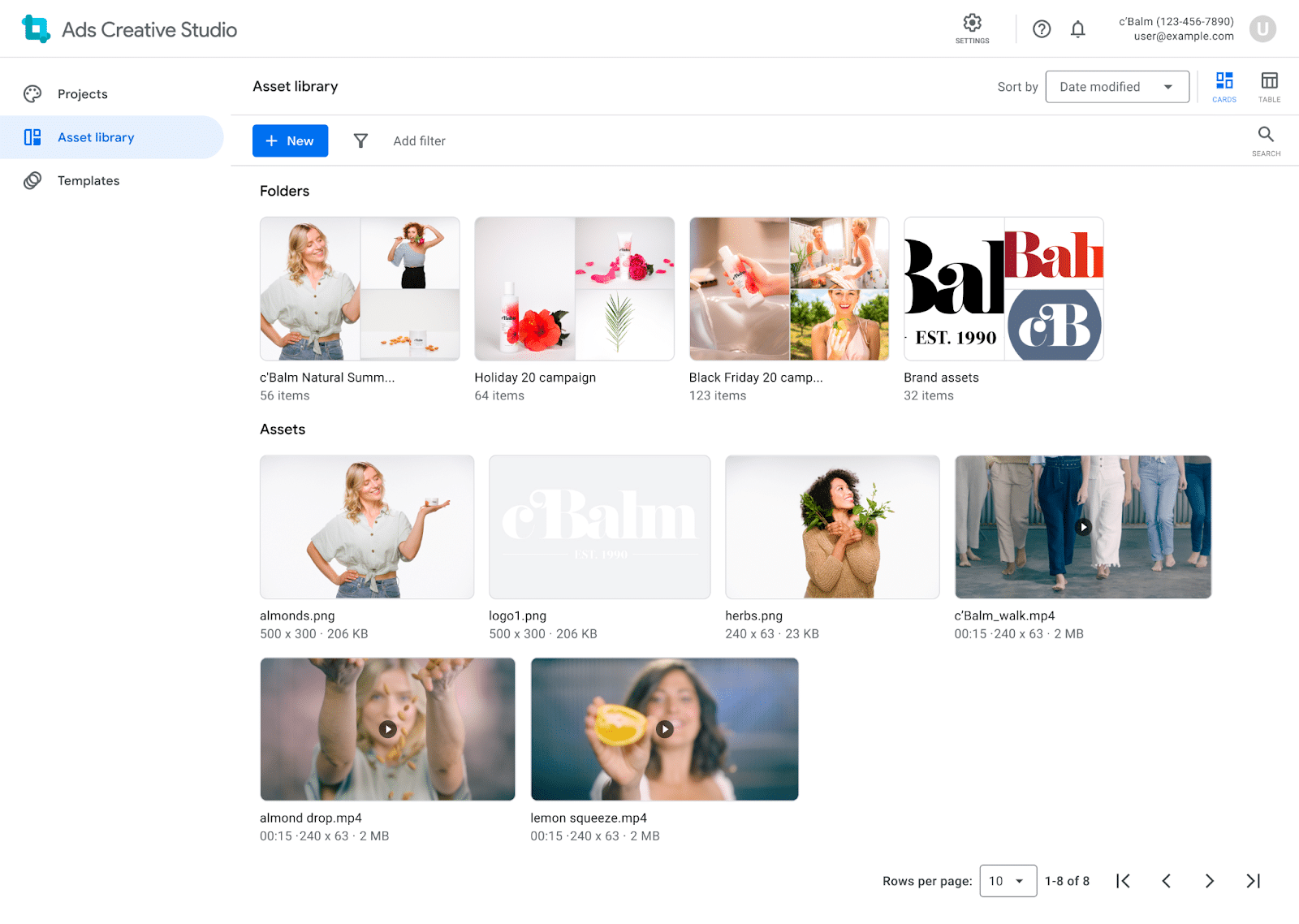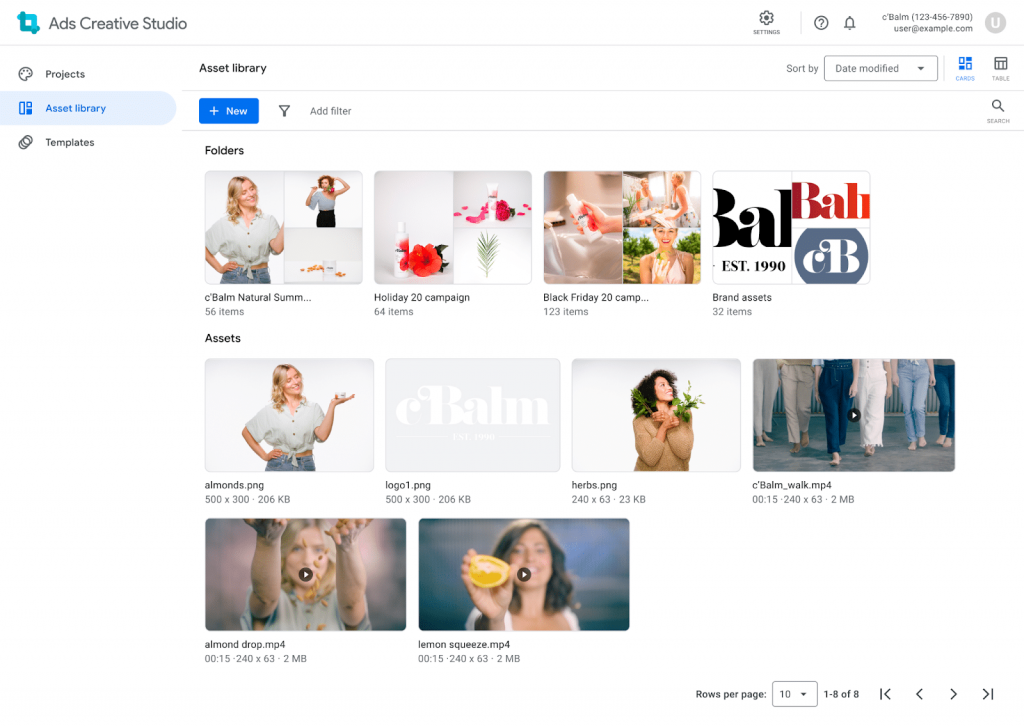Why strong Google Ads creative is THE priority for advertisers
Automation in digital advertising has become a lifeline. If you’re thinking of the latter without the former, you’re falling behind competitors.
While the idea of robots stealing marketing jobs plagues worriers and late-embracers, automation frees up time for advertising teams to focus more on branding, strategy, data and, in turn, creative.
PPC advertisers must embrace machine learning and feed it the right data to improve performance.
You vs. AI is a fight you won’t win. AI is at the heart of all of Google’s decisions, and creative is driving automation.
Google’s new ad type announcements at Google Marketing Live (i.e., video views and demand gen campaigns) and products like the Ads Creative Studio have made it clear that strong creative must become a priority.
Here’s why and how advertisers can hone in on PPC ad creative to drive better results in Google Ads.
PPC ad creative front and center
The explosion of TikTok has inspired other platforms to create similar products and changed the format and frequency in which content is consumed.
Vertical videos with a real-life look and feel and trendy audio is the direction that ads must follow to stay relevant and keep users engaged.
This means less text, more visuals and more motion.
Consumers are exposed to thousands of ads per day. Advertisers are battling with their competitors for attention and going against all other advertisers for digital ad space.
When Google is deciding when to show your display ad, it is taking into account the following:
- Your bid in the auction.
- How relevant your ad is to the user.
- How likely the user is to click on it.
After all, Google makes money off of clicks.
The importance of relevant, eye-catching ads means there is a need for more assets than ever before. The more asset options that machine learning is fed, the better.
The algorithms decide which to show your audience based on asset strength ratings.
Creative should be tailored to the personas you’re trying to reach, be consistent with brand messaging and contain an enticing offer for increased engagement.
Streamlining creative production
Unsurprisingly, Google would make it easy for advertisers to produce creative content to support this push.
- “Ads Creative Studio is a creative management platform designed for creative teams. You can use it to build ads, manage creative assets, and share them with media teams. Ads Creative Studio can improve collaboration and transparency between your creative and media teams and help you create effective ads with more efficiency and scale,” according to Google.
Google’s Bumper Machine is also an easy way to turn your video or image assets into a 6-second video asset for YouTube Bumper Ads.
While these tools make it easy for teams to create and collaborate, the end product will only be as good as what you feed it.
The Ads Creative Studio nor Performance Max’s use of generative AI should not replace a creative team as unique, high-quality creative generates a better user experience that is more on-brand and relevant to users.

Varying creative ad types and formats unlock more placements for your brand to make an impact.
While generating copious amounts of visuals can be overwhelming, scalable creative doesn’t have to break the bank.
Some simple ideas for leveling up your creative offerings include:
- Adding motion to an existing static banner.
- Chopping an existing video to test shorter lengths.
- Test various CTAs.
- Analyze variables such as color, headlines, and dimensions for learnings and optimizations.
Brands are often scared by the high price tag of video production. However, depending on budget one production can create 50 to 100 different assets or more, ultimately saving money and staying ahead of creative refresh needs.
Video-first mindset
The two new video campaign types announced at Google Marketing Live are video views and demand gen.
Video view campaigns are intended to drive down the cost of video views by combining skippable in-stream, in-feed, and YouTube Shorts ads.
Demand gen campaigns will also show across YouTube, Discover, and Gmail to drive conversions using lookalike audiences.
As Google rolls out more video-first campaign types, advertisers must keep up.
In addition to the increase in video content consumption, there are numerous upsides to leveraging video, including:
- Ad formats to modernize your brand.
- Video allows for more information than static banners to overcome purchase barriers.
- This format is great for education, use cases and demos.
- Videos can be used across several platforms (and your website) without duplicating efforts.
- View rates can tell how creative is performing, a data point that static imagery can’t tell you.
Always tailor your creative to your audience. The more relevant and useful content is, the more engagement it will receive.
Consider where a user is in the buyer journey and decide what messaging fits their needs. Use a strong call to action at each stage of the funnel and test sequenced messaging.
Video ad sequencing allows you to tell your brand story with multiple ads shown in a specific order to get a message across or achieve a conversion goal.
Measuring success
Testing is critical when it comes to feeding AI new creative. Gaining insights from creative variations helps advertisers strengthen optimizations and machine learning.
Determining creative success isn’t always as simple as looking at conversion metrics, even if conversions are your ultimate goal.
KPIs like CTR, CPC, views, CPV, video completion rates, YouTube earned actions and more can tell a complete story about how creative is performing before the user gets to your landing page or form.
Keep in mind that bid strategies can influence performance. For example, if you’re on a conversion-optimized strategy, you might see fewer impressions and clicks.

Setting up an experiment is an easy way for Google to do the work for you. There are several experiment options available in-platform.
Performance Max test uplift can help you understand the impact of running PMax alongside your existing campaigns. Video experiments identify which of your video ads drives the strongest performance.
Lastly, custom experiments can test any variable you’d like. The custom experiment duplicates your existing campaign and allows you to change the campaign without adjusting the original.
You must only test one variable at a time (i.e., creative color) so the experiment remains a true A/B test without any other factors influencing the results.
All experiments run for a set time and measure success outcomes to determine a winner. From there, you can decide how to proceed with the account.

Advertisers should never become complacent with the number of assets they run and the messaging they drive. A never-stop-learning attitude makes a successful marketer and helps AI drive the strongest results.
Always test the latest tools and features to see what works for your brand and learn to embrace the changes in the ad industry. It’s just the beginning!
The post Why strong Google Ads creative is THE priority for advertisers appeared first on Search Engine Land.










Recent Comments